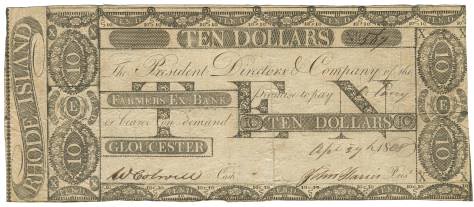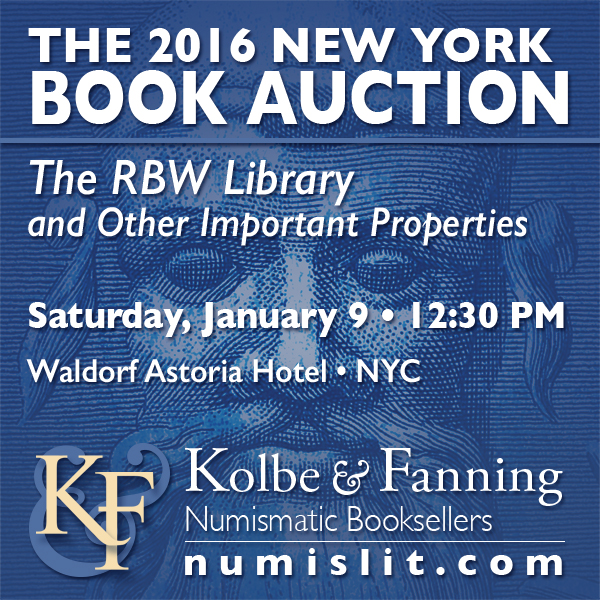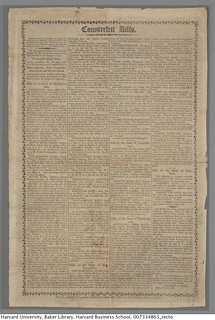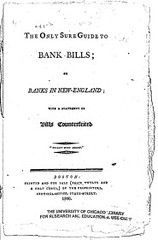
PREV ARTICLE
NEXT ARTICLE
FULL ISSUE
PREV FULL ISSUE
COUNTERFEITING IN BOSTON, 1806-1808
On December 14, 2015 Matthew Wittmann of the American Numismatic Society published a Pocket Change blog article on counterfeiting
in Boston, drawing upon the counterfeit detector publications of the Boston firm of Gilbert & Dean. Be sure to read the complete version
online. -Editor
The freewheeling commercial world that was budding in Boston during the early nineteenth century has been ably captured by Jane Kamensky’s The Exchange Artist (2008). Kamensky focuses on the story of Andrew Dexter, Jr., a speculator whose rise and fall served as a cautionary tale for the newfound banking and paper money industry. The book is well worth a read, but the short version is that Dexter financed his schemes by gaining a controlling interest in a particular bank and then issuing more bank notes than the institution could ever possibly redeem. The most infamous of these was the Farmers’ Exchange Bank of Glouscester, Rhode Island, which issued an incredible number of notes beginning in the spring of 1808. Dexter quite literally used the bank to print money in order to finance an extravagant real estate project known as the Exchange Coffee House. 
$10 bill issued by the Farmers’ Exchange Bank in April 180 The scheme eventually collapsed when the public realized that the bank was unable to meet its extensive obligations, but knowledgable exchange brokers likely reaped a profit by divesting themselves of the specious notes in advance.
A typical description listed problems with the paper (too dark, too thin, etc.) or details like poorly set type and missing or altered elements for the public to ferret out fake bills. Gilbert & Dean were notably not doing this as a public service but to reap a profit, as the broadside cost 12 and a half cents (a bit or eighth of a dollar). Nearly fifty examples of counterfeit bills are noted, giving a good impression as to the scope of the problem.
If any one should suffer for want of information, rather than buy a pamphlet, the blame must attach to himself alone; and he will not receive that commisseration which in justice he ought. The twelve-page pamphlet provides details on forty-six banks while noting that there were seventy-four banks in operation in the whole United States, the balance of which were located in New England. 
$1 note for Union Bank of Boston counterfeited by Burroughs in 1807 To read the complete article, see:
We discussed the book The Exchange Artist bank in 2009; below are links to earlier E-Sylum articles. -Editor
To read the earlier E-Sylum articles, see:

Wayne Homren, Editor The Numismatic Bibliomania Society is a non-profit organization promoting numismatic literature. See our web site at coinbooks.org. To submit items for publication in The E-Sylum, write to the Editor at this address: whomren@gmail.com To subscribe go to: https://my.binhost.com/lists/listinfo/esylum All Rights Reserved. NBS Home Page Contact the NBS webmaster 
|

